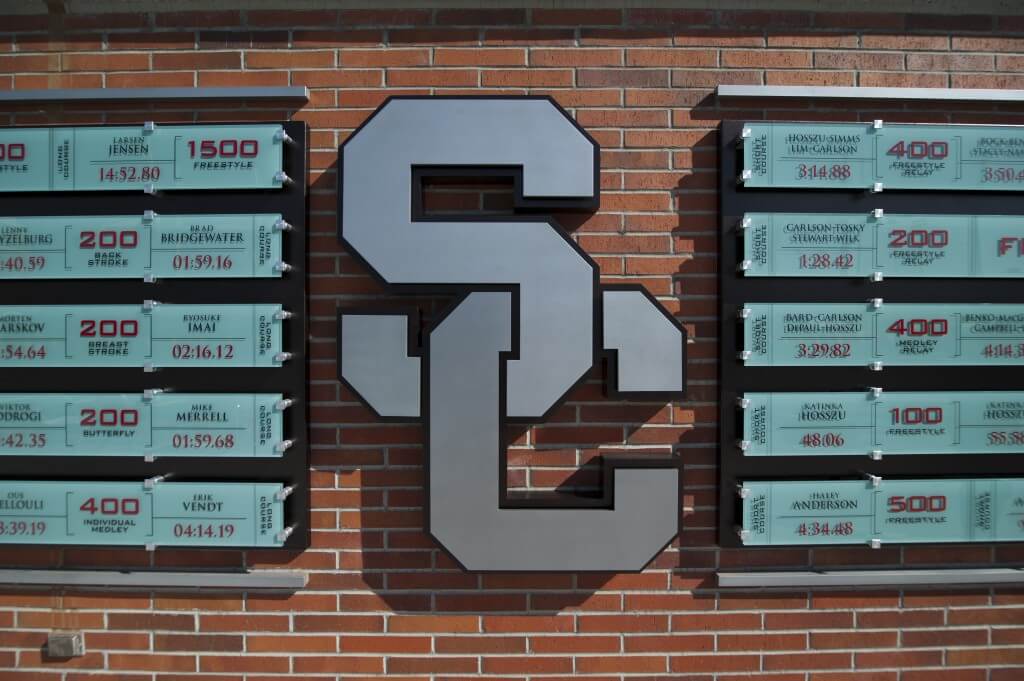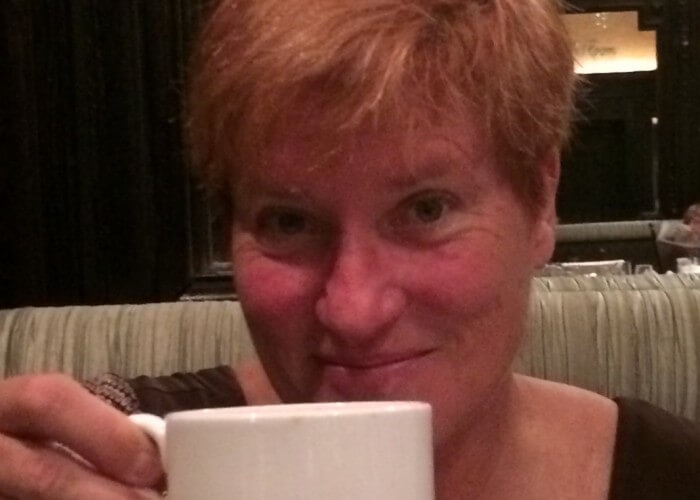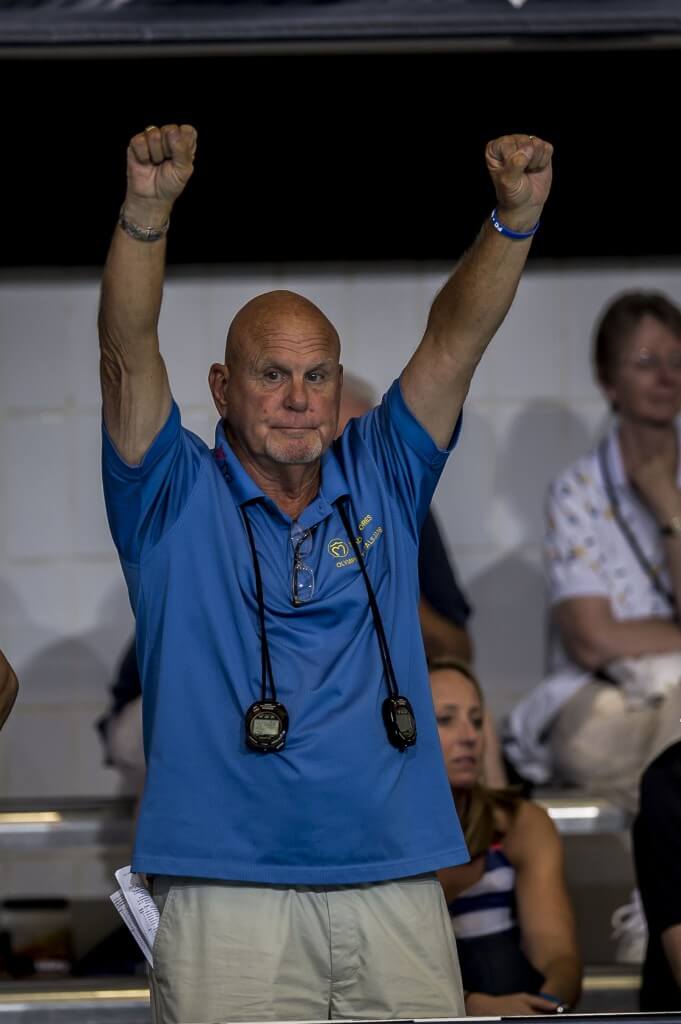How College Swimming Changed My Life: NYT Journalist Karen Crouse

By Lillian Nelson, Swimming World College Intern
Swimming is a difficult sport which requires sacrifices and demands maturity. Growing up in the sport and swimming through college offers countless opportunities to learn life lessons and ingrains lasting values in athletes. The character we build by enduring everything this sport throws at us sets us up for a successful professional career beyond the pool.
University of Southern California alumni, Karen Crouse grew up in Santa Clara, California, and swam for the Santa Clara Swim Club, De Anza Swim Club, South Bay Aquatics, and St. Francis High School before heading off to compete for USC.
After graduating with a degree in journalism, she worked at Swimming World for two years. She is now an accomplished sports journalist for the New York Times, and owes much of her success to her swimming career. Swimming World recently had the opportunity to hear the integral role swimming played in Crouse’s journey to the New York Times.
Lillian Nelson: How did swimming in college help shape you into the person you are today?
Karen Crouse: This question reminds me of one that the golfer Bill Haas often fields. His father, Jay, was a very good PGA Tour player and so he is asked what it’s like to be the son of a very accomplished golfer. And his answer is basically, “I don’t know any different.” And it’s the same for me and swimming. I don’t know what I would have been like if I hadn’t swum because from the time I was 9, the sport was such an integral part of my life. It formed me during my formative years.
I definitely have more self-discipline and resilience than a lot of my non-swimming peers in journalism. And I’m more indefatigable (I once had an editor marvel at the hours I kept during an Olympics. Her exact words were: “And you don’t even drink! I don’t know how you do it!’). I don’t know whether I would have been that way if not for swimming, but I definitely have great time-management skills and the ability to squeeze every ounce of production out of a day, which definitely stems from all my years of double workouts interspersed with advanced-level classes.
My swimming background has helped me immensely in my job as a sportswriter, because even though I wasn’t as accomplished as the people I cover, I know what the process of becoming an elite athlete entails and I know the daily sacrifices and struggles that must be endured. So I think I bring an empathy and understanding to my interviews, which reflects my experience.
I once had a Jets receiver ask me if I had been an elite athlete. I told him I swam through college and he said he knew it, that he could tell by the kinds of questions I asked that I had been an athlete. I took that as a huge compliment! I remember once being in a football media scrum around a player who had just been promoted to starter. And someone actually asked the player if he had been working harder and that was why he earned the promotion. It struck me as such an uninformed question. I knew immediately that the person who asked it hadn’t been a high-level athlete, otherwise he would have known not to assume that the hardest workers are naturally the starters/best performers. I swam on plenty of teams where the hardest workers were the most tired but not the most successful.
LN: How did being a college athlete helped prepare you for the professional work environment?
KC: I was a walk-on at U.S.C., which made me a small fish in a big pond. I was around people much more accomplished, and though I was a tireless worker, I could never quite catch up. So I left college with a bachelor’s in journalism and physical education and an advanced degree in humility. Sadly, not everybody respected us walk-ons.
I came across people who valued people based on their times and not their character, and while that was hard to swallow at the time, it was invaluable preparation for the outside world. I’m also a small fish in a big pond at the Times, and so I think being able to navigate a world of big egos and massive insecurities when I was younger prepared me well for what I would face in my career.
LN: What did you learn from your experience working for Swimming World?
KC: I worked at swimming world for two years right out of college and while there I learned how to be a reporter and, with the help of Bob and Ann Ingram, the publisher Dick Deal and my writing colleague Mark Muckenfuss, how to be a professional.
LN: What advice would you give to college swimmers who have not yet been immersed in the professional world?
KC: College sports have become a bottom-line business: did you get a scholarship, did you make NCAAs, did you score points at NCAAs? I did none of those things and yet I look back on my college swimming experience as an unqualified success because of the lessons learned (some of them heartbreaking, but that is life) and the friendships forged and the life tools that I acquired; the resilience and the discipline and the dedication to a task.
LN: Any other thoughts you may want to share with the Swimming World audience?
KC: Some people know this story because I wrote it for the paper in 2012, but it is such a wonderful story, and so integral to my life’s journey, it bears repeating. When I was in the eighth grade, my English class was assigned a magazine project. I decided to create a swimming magazine, naturally, which I named “Splash” (this was BEFORE the real Splash, by the way). I was very shy and so I was going to make up an interview for the magazine but my dad, a very gregarious man, would not hear of it. He basically badgered me into approaching the head coach at De Anza at the time, Bill Rose, and asking if I could interview Mike Bruner, who was expected to win multiple medals at the 1976 Olympics and was God-like to all of the team’s age-groupers, myself included. I was petrified at the thought of interviewing THE GREAT MIKE BRUNER. And Coach Rose easily could have blown off my request. But bless him, he did not. He told me to stay after workout the next day and have my questions ready.
I found out later he told Mike that he had to stay after practice the next day because he was going to be interviewed. Mike thought a REAL journalist was finally showing up to give him his due, somebody from Sports Illustrated or the San Jose Mercury News, so you can imagine what must have gone through his mind when I showed up, a pipsqueak in pigtails who was shaking like a leaf. He could have been a jerk, but he was as gracious as anybody I’ve ever interviewed. I can never thank him enough for that small kindness.
I wrote up the interview, turned in the project and got an A. The Olympic Trials were in Long Beach not long afterwards, and my dad took me to them, and I brought Coach Rose and Mike copies of my magazine so they could see how the interview turned out. Mike had missed making the Olympic team in his first event, the 400 freestyle, and was in a sulky mood. His mindset was not great for his next, and best, event, the 200 fly.
I gave Coach Rose the magazine, and UNFATHOMABLY, he actually took the time to read the interview. When he saw a certain passage, he said, “Karen, this is great. Mike needs to read this RIGHT NOW!” and he did track down Mike and make him read aloud his own words. Mike had told me in the interview that he doesn’t worry if he does not feel good when the big meet rolls around because he trusts that nobody worked harder and he has faith that all of his hard work will pay off.
That night Mike went out and made the Olympic team in the 200 fly, and when he was asked by REAL reporters later what was the difference between his awful 400 freestyle and his inspired 200 butterfly, he told the story of the “little girl” on his swim team who did an interview with him and reading the interview put him in the right frame of mind to make the Olympic team.
That made it into the Long Beach Press-Telegram, so the next day when I showed up at the pool, all the older kids showed me the paper and fawned over me like I had made the Olympic team. I remember being so blown away. I was so shy and yet something I had written had made a positive impact on someone’s life.
How was that even possible? It struck me as magical that a pen could wield such amazing powers. I remember distinctly telling my dad that I wanted to grow up to be a writer who positively impacted people. If not for the generosity of spirit of Mike and Coach Rose and my dad, I never would have embarked on this crazy quilt of a career that I’ve had. I owe them EVERYTHING.
After my story on my life-changing encounter with Mike appeared in the New York Times, I heard from a woman who had been my best friend in eighth grade. She said she remembered the magazine assignment but that it had been for EXTRA CREDIT! She said she didn’t create a magazine but remembered me working very enthusiastically and diligently on Splash. So there you have it – my life turned on an extra credit assignment!






Allyx Purcell ?
Awesome story on so many different levels–made my day!! I will save it to use with the young kids I work with. Thanks Lillian and Karen!
“I came across people who valued people based on their times and not their character, and while that was hard to swallow at the time, it was invaluable preparation for the outside world.” –this is very true and an important lesson to learn early on- luckily swimming also teaches you to look within for strength and self-worth, even when those around you may fail you. I teach young people to trust themselves and try to surround themselves with people who believe in them unconditionally, and ignore the rest.
Again, thanks.
I love reading all your articles Karen! You are so talented and I always smile knowing that I knew you when we were little fish in Santa Clara!
Tremendous story. Very inspiring. Perfectly captures the skills, discipline and relentless work ethic of the swimmers I’ve known. Karen has a wonderful touch.